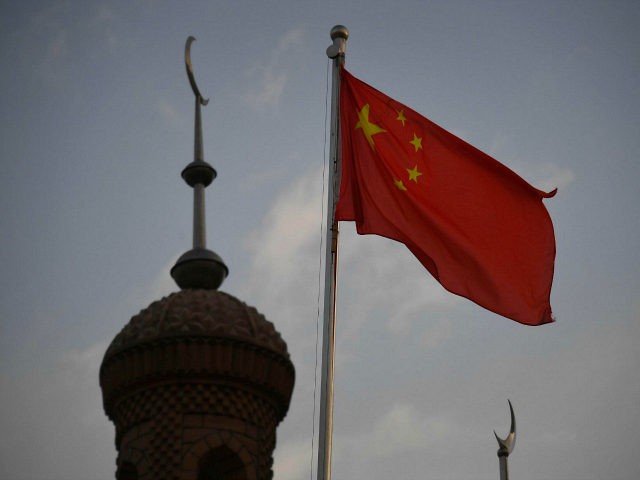Beijing dismissed on Tuesday U.S. assertions that it is using technology to violate human rights in Muslim Uighur-majority Xinjiang province, arguing that its “big data” efforts allegedly aimed at improving “social governance” target everyone “irrespective” of nationality in an op-ed published by the state-run China Daily.
China Daily’s editorial argues:
Certain countries, including the United States, ignore the significant progress made in Xinjiang’s anti-terrorism campaign, perhaps because they prefer to see turmoil in the region. Claiming that China uses big data to violate the human rights of minority ethnic groups in Xinjiang, these countries have threatened to sanction Chinese technology companies that have taken part in Xinjiang’s modern governance.
…
Contrary to the US’ practice, China mainly applies big data [efforts in Xinjiang] irrespective of the nationality of those monitored in a bid to counter the threat posed by East Turkestan Islamic Movement [ETIM] terrorists. Besides, the global trend is to use advanced technology to improve social governance.
ETIM refers to a Taliban and al-Qaeda-linked jihadi group known to train and operate in the Afghanistan-Pakistan region that borders Xinjiang.
U.S. President Donald Trump’s administration is considering blacklisting China’s largest surveillance and detention technology companies, namely Hikvision, known for its activities in Xinjiang, reportedly home to hundreds of “re-education” camps where imprisoned Uighur minorities are forced to renounce their religion in favor of communism.
China claims its mistreatment of Muslims is making Xinjiang safer. Beijing is even promoting tourism to Xinjiang, home to what the U.S. and survivors have described as “concentration camps” holding up to three million mainly Uighur Muslims.
The editorial attributes China’s so-called anti-terrorism success largely to the “rapid development of science and technology … big data in particular.”
China Daily boasts that, although jihadis fleeing Iraq and Syria following the fall of their “caliphate” this year are allegedly seeking refuge in Xinjiang, “no terrorist cases have been reported [in the region] in the past two years.”
Thousands of Uighur jihadis did allegedly travel to Iraq and Syria to join terrorist groups like the Islamic State (ISIS/ISIL). China has repeatedly justified its Muslim crackdown as an effort aimed at combating extremism, terrorism, and separatism among Uighurs.
The U.S. government has blasted Chinese efforts against Muslim minorities in Xinjiang. In the province, China’s most enormous, Beijing is reportedly subjecting up to three million Uighurs and other Islam adherents to extrajudicial incarceration, torture, communist indoctrination, forced labor, and the renunciation of their faith and native language, among other human rights abuses, inside the internment facilities.
U.S. officials have also denounced China’s overall oppression of its predominantly Muslim Uighur minority, indicating that communist authorities in Xinjiang have constructed what amounts to a police state through “extensive and invasive security and surveillance, in part to gain information regarding individuals’ religious adherence and practices.”
Several news outlets and human rights groups have acknowledged that China is using high-tech surveillance tactics to closely monitor its Uighur minority. China is even exporting its surveillance technology to other authoritarian regimes.
China Daily defended China’s practices in Xinjiang, arguing that they target everyone, not just Uighurs and other Muslim minorities.

COMMENTS
Please let us know if you're having issues with commenting.